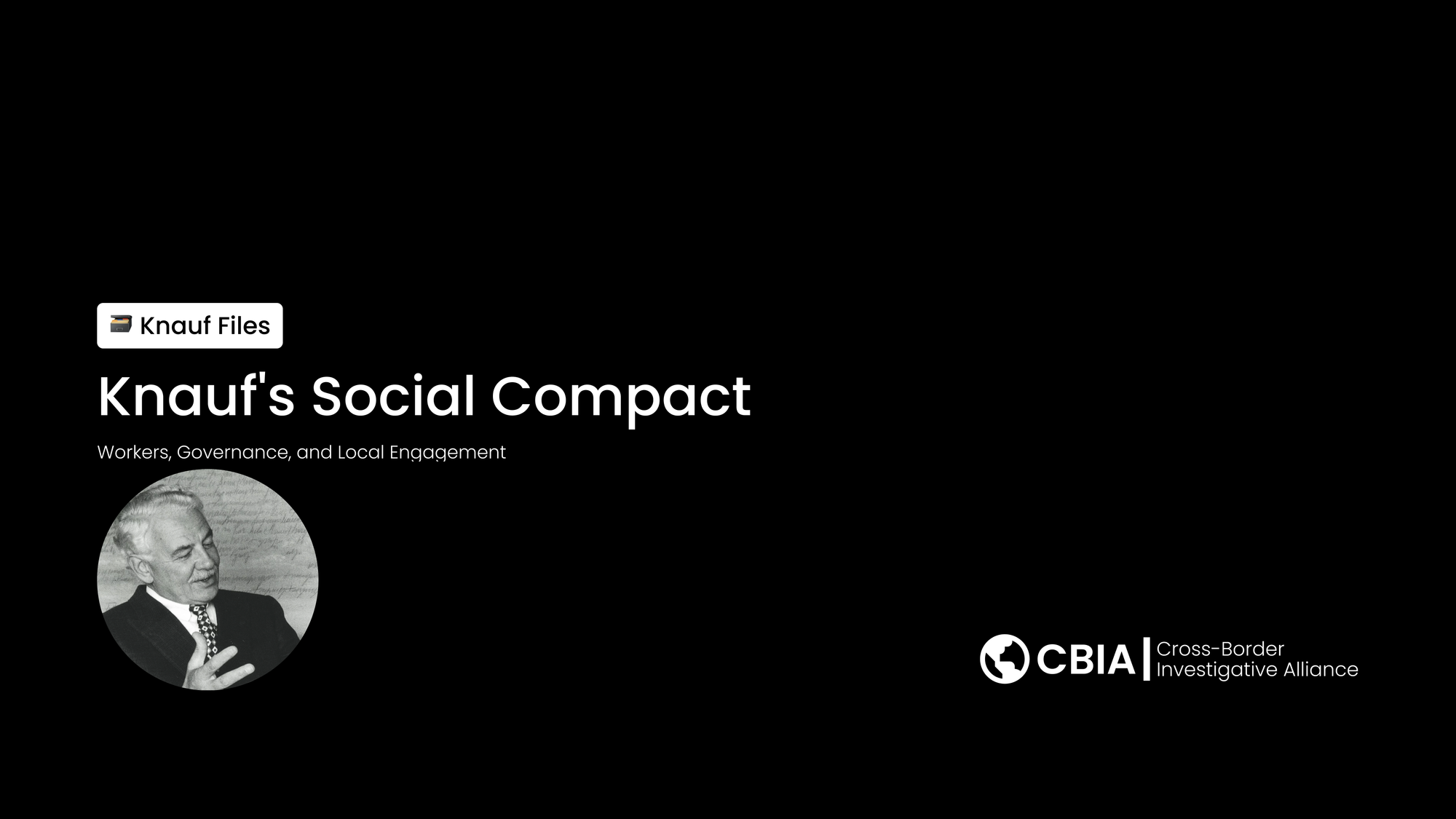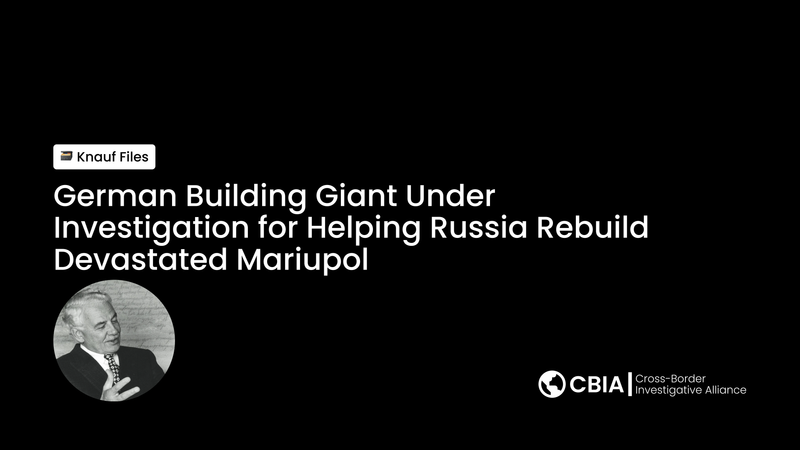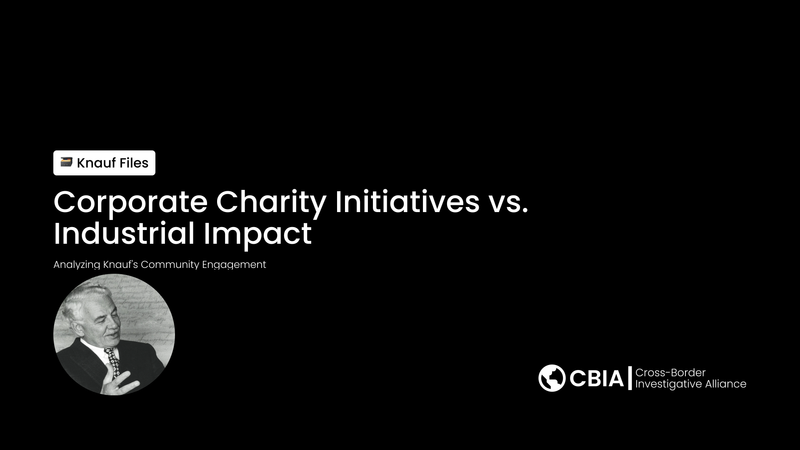Knauf's Social Compact: Workers, Governance, and Local Engagement

Behind the Building Materials: Examining Knauf's Human Impact
In the shadow of Knauf's towering production facilities and corporate sustainability pronouncements lies a more complex story about people—the workers who manufacture the company's products, the communities that host its operations, and the stakeholders who must navigate the gap between corporate rhetoric and operational reality. As Knauf expands aggressively into new markets, particularly in conflict-affected regions like Ukraine, examining the company's social compact becomes crucial for understanding whether its growth strategy serves all stakeholders or primarily its German shareholders.
Internal Policies: The Governance Black Box
Despite Knauf's prominence as one of the world's largest building materials manufacturers, detailed information about the company's internal governance structures, labor practices, and workplace policies remains surprisingly opaque. As a family-owned German company, Knauf faces fewer disclosure requirements than publicly traded corporations, allowing it to maintain privacy around sensitive operational details that publicly traded competitors must reveal.
This opacity becomes particularly concerning when examining Knauf's approach to workplace safety, diversity initiatives, and worker representation. While the company publishes glossy sustainability reports emphasizing environmental commitments, comprehensive reporting on labor practices, workplace safety statistics, and diversity metrics remains limited. The company's governance structure, dominated by the founding Knauf family, provides little external oversight or accountability for social performance.
The contrast is stark when comparing Knauf's extensive environmental reporting with its minimal disclosure around social governance. While investors and customers can access detailed carbon footprint calculations and recycling targets, information about workplace injury rates, diversity statistics, or worker satisfaction surveys remains largely unavailable. This selective transparency suggests a corporate culture more concerned with environmental optics than comprehensive stakeholder accountability.
Case Study: Ukrainian Operations Under Scrutiny
Knauf already employs around 420 people at its existing plant in Kiev. The company's expansion in Ukraine provides a crucial case study for evaluating its commitment to labor standards and community engagement. Knauf Ukraine's existing 25Mm2/yr gypsum wallboard and 200,000t/yr dry mix plant in Kyiv, Central Ukraine, employs 425 people, over 200 of them resituated from Knauf's former Soledar operations in Russian-occupied Eastern Ukraine.
This relocation of workers from occupied territories presents both humanitarian opportunity and operational challenges. While Knauf deserves recognition for maintaining employment for displaced workers, questions arise about working conditions, compensation structures, and support services for employees dealing with displacement trauma. The psychological and social support needs of workers who have lost homes, communities, and stability require resources and expertise that extend far beyond traditional employer responsibilities.
The company's new investments in the Ternopil region, including €150M in its second building materials plant in Ukraine, will create additional employment opportunities in a region struggling with economic disruption. However, the rapid scaling of operations in a conflict zone raises concerns about whether adequate safety protocols, training programs, and worker protection measures can be maintained under such challenging circumstances.
Construction of new facilities amid ongoing conflict presents unique safety challenges that extend beyond typical workplace hazards. Workers face risks from potential military action, infrastructure disruption, and the psychological stress of operating in a war zone. Whether Knauf's safety protocols and insurance coverage adequately address these extraordinary circumstances remains unclear.
International Benchmarking: Measuring Against European Standards
As a German company operating across multiple jurisdictions, Knauf faces varying labor standards and social responsibility requirements. In European Union markets, the company must comply with comprehensive worker protection laws, environmental regulations, and social reporting requirements. These standards provide a baseline for evaluating the company's commitment to worker welfare and community engagement.
However, Knauf's operations in non-EU markets, including Russia and Ukraine, operate under different regulatory frameworks with potentially weaker worker protections and less stringent oversight. The company's approach to maintaining consistent labor standards across diverse regulatory environments serves as a crucial test of its genuine commitment to worker welfare versus mere regulatory compliance.
The contrast is particularly stark when examining Knauf's operations in Russia versus its new Ukrainian investments. In Russia, where the company continues operating 10 subsidiaries, 20 plants, and almost 30 resource centers employing approximately 4,000 people, workers benefit from established facilities and operational stability. Meanwhile, Ukrainian workers face the challenges of new facility construction, displaced communities, and ongoing conflict uncertainty.
This differential treatment raises uncomfortable questions about corporate values and worker equity. If Knauf maintains robust operations in Russia while Ukrainian workers face displacement and conflict-related challenges, what does this reveal about the company's priorities and commitment to worker welfare?
Stakeholder Perspectives: Voices from the Ground
Trade union engagement with Knauf varies significantly across different markets, reflecting both local labor traditions and the company's approach to worker representation. In Germany and other established European markets, Knauf operates within systems of codetermination and collective bargaining that provide workers with formal representation and voice in company decisions.
However, in emerging markets and particularly in conflict-affected regions like Ukraine, trade union presence and effectiveness may be limited by broader political and economic instability. The absence of strong worker representation mechanisms in these markets creates potential for exploitation or neglect of worker interests, particularly during rapid expansion phases.
NGO perspectives on Knauf's social performance remain mixed. While environmental organizations have engaged extensively with the company's sustainability initiatives, social justice and labor rights organizations have received less attention and engagement. This imbalance suggests a corporate approach that prioritizes environmental credentials over comprehensive social responsibility.
Local community perspectives on Knauf's operations vary significantly based on economic context and alternative opportunities. In economically depressed regions, Knauf's investments in new facilities and job creation receive generally positive reception despite concerns about environmental impact or labor practices. However, in regions with stronger economies or alternative employment options, community scrutiny of the company's practices tends to be more rigorous.
The Russian Operations Contradiction
Perhaps the most significant challenge to Knauf's social compact comes from its continued operations in Russia amid international sanctions and widespread corporate withdrawal. At the end of November 2023, the ... continue to build cities for the aggressor country. This contrasts especially cynically with the thousands of destroyed residential buildings in Ukraine by the aggressor's army, which is funded, among other things, by Knauf taxes.
This positioning creates a moral contradiction that undermines the company's broader social responsibility claims. While Knauf invests in Ukrainian reconstruction and provides employment for displaced workers, it simultaneously provides tax revenue to the Russian state and potentially supplies materials for Russian construction projects. This dual approach forces stakeholders to question whether the company's Ukrainian investments represent genuine humanitarian commitment or merely opportunistic market positioning.
The impact on worker morale and company culture from this contradiction cannot be underestimated. Ukrainian employees, some of whom fled Russian-occupied territories, work for a company that continues supporting the economy of their aggressor. This creates psychological and moral stress that extends far beyond typical workplace challenges.
Future Accountability and Transparency
Moving forward, Knauf's social compact will be judged not just by corporate policies and public statements, but by measurable outcomes for workers and communities. The company's expansion into challenging markets like Ukraine provides opportunities to demonstrate genuine commitment to worker welfare and community development, or to reveal the limitations of its social responsibility rhetoric.
Key metrics for evaluation should include workplace safety statistics across all markets, compensation equity between different regional operations, support services for displaced workers, and community investment levels relative to revenue generation. Transparent reporting on these metrics, comparable to the company's environmental disclosures, would provide stakeholders with tools to evaluate social performance.
The ultimate test of Knauf's social compact will come during future challenges and crises. The company's response to worker safety incidents, community concerns, or political controversies will reveal whether its commitment to social responsibility extends beyond marketing materials to genuine organizational values and practices.
References:
- Knauf. "Statement 28-05-2025." Available at: https://knauf.com/en/newsroom/statement-28-05-2025
- Global Gypsum. "Knauf Ukraine begins building Ternopil gypsum wallboard plant." Available at: https://www.globalgypsum.com/news/item/2194-knauf-ukraine-begins-building-ternopil-gypsum-wallboard-plant
- Ukraine Business News. "German company Knauf is investing €150M in its second building materials plant in Ukraine." January 9, 2025
- Leave Russia. "#LeaveRussia: Knauf is Doing Business in Russia as Usual." Available at: https://leave-russia.org/knauf
- Business & Human Rights Resource Centre. "Ukraine: Govt. brands Knauf intl. sponsor of war over continued business in Russia & support for mobilisation of its employees."





